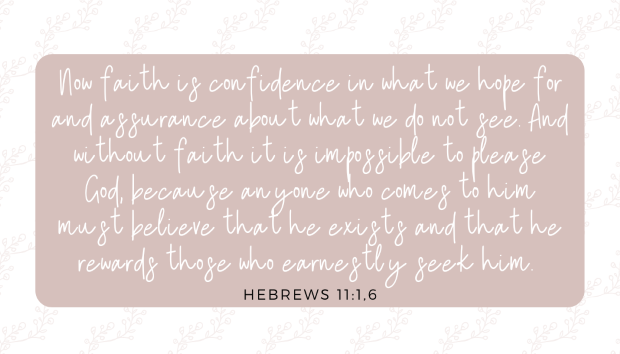There are a total of 21 dreams recorded in the Bible. Ten of these dreams are in the Book of Genesis, and only six are in the New Testament, all of which are in the Book of Matthew. Two of the dreamers in the Bible are named Joseph, one is a woman, and six are kings. Even though there are dreams and visions recorded, and they both serve similar purposes, they are not to be confused.
Differences Between Dreams and Visions in the Bible
Some people might be confused about the difference between a vision and a dream. Visions and dreams are distinctly different, but the difference itself is quite simple. The dreams occur when the dreamer is asleep, whereas visions occur while the person is awake. The majority of visions experienced in the Bible happened while the person was praying or worshiping God.
Purpose of Dreams in the Bible
Celestial Communication is the universal purpose of the dreams in the Bible. This communication is used by God to deliver significant messages that include:
- Revelations
- Counsel and Direction
- Word of Caution
- To Encourage and Uplift
A Quick Rundown of Each Dream
Now we will dive in and briefly review each dream in Biblical order.
Abimelek’s Dream
Found in: Genesis 20
Summary: While they were in Egypt, Abraham had instructed Sarah to tell everyone that they were brother and sister (which is technically a half-truth, as they were half-siblings). Abraham did this because, at the time, it was customary for a man to be killed if a person of nobility wanted to take his wife for himself. If it was believed that they were siblings, the man would not be perceived as a threat, therefore, his life would be spared. So when Abraham and Sarah temporarily relocated to the town of Gerar, they lived under the guise of being brother and sister. The king, Abimelek, was captivated by Sarah’s beauty. He took her to become his wife. God came to Abimelek in a dream and warned him that if touched Sarah and did not return her to Abraham, he and all who belonged to him would meet a swift demise. Abimelek promptly returned Sarah and provided him with sheep, cattle, slaves, money, and land in the form of an apology. God blessed Abimelek for his righteous decision by making his wives and concubines able to bear children.
Jacob’s Ladder
Found in: Genesis 28:10-22
Summary: After all of the drama went down between Esau and Jacob, Jacob fled his family home. While on the run, he stopped to rest one night, using a stone for a pillow. That night, he dreamt of a ladder reaching up toward heaven. At the top of the ladder, Jacob watched as angels scaled the steps. At the top of the ladder, Jacob saw God. God proclaimed that the covenants and blessings He promised Abraham and Isaac were promised for him too, and their descendants would inherit the Promised Land. God told Jacob that he would be with him throughout his travels and make sure that he would arrive back home safely. When Jacob awoke, he used the stone pillow and built an altar. He acknowledged and praised God and His divine promises. Jacob’s dream also reveals the connection between God and man.
Jacob’s Return Home
Found in: Genesis 31:1-18
Summary: Jacob had been working for his father-in-law for several years. His father-in-law, Laban, had been treating Jacob unfairly. An angel of God visited Jacob in a dream. In the dream, Jacob recounted all of the abuse he had endured from Laban. God showed Jacob the ways that He has still been blessing him. God then told Jacob that it is time to go back home. When Jacob awoke, he gathered his wives and children and fled his father-in-law's house.
Laban’s Dream
Found in: Genesis 31:22-55
Summary: Upon the discovery that his daughters and grandchildren ran away with Jacob, Laban realized that his house gods were missing. He already felt betrayed, and the discovery of his missing property sent him over the edge. Laban chased after Jacob. While on the journey, God came to Laban in a dream. God warned him to not say anything good or bad to Jacob, just allow him to go in peace. When Laban eventually caught up with Jacob, they made amends and Laban said his goodbyes to his daughters and grandchildren.
Joseph’s Dream of Grain
Found in: Genesis 37:5-8
Summary: There was no question that Joseph was his father's favorite. Joseph’s brothers were envious and hated him. Joseph had a dream that he and his brothers were binding sheaves of grain in the field together. The sheaf that he had been holding suddenly stood upright and the sheaves his brothers held gathered around Joseph’s sheaf and bowed down. After Joseph relayed the dream to his brothers, their hatred and spite grew.
Joseph’s Dream of Stars
Found in: Genesis 37:9-11
Summary: This dream immediately follows Joseph’s dream about the grain, and shares the same message. In this dream, Joseph tells his family that the sun, moon, and eleven stars were bowing down to him. In both dreams, God unveils His plan to restore rule to a descendant of Abraham through Joseph.
The Cupbearer’s Dream
Found in: Genesis 40:1-15
Summary: After Joseph was sold into slavery, he was bought by one of King Pharaoh’s ministers. Joseph was falsely accused of seduction by said minister's wife and thrown into jail. While Joseph was in jail, Pharaoh’s cupbearer and baker angered him, so they too, were thrown into jail. Joseph had the responsibility of looking after the two men. On the same night, both men had dreams that left them feeling concerned. Joseph asked them to explain their dreams. The cupbearer told Joseph his dream first. In his dream, the cupbearer saw a vine with three branches. As quickly as the vines began to bud, they blossomed and quickly ripened into grapes. The cupbearer realized that he was holding the Pharaoh’s cup, so he took the grapes, gave them a squeeze, and the juices emptied into his cup. He then returned the cup to Pharaoh. Joseph told the man that the three branches represented three days. Joseph continued to interpret the dream and told the man that within three days, he would be restored to his position in the house of Pharaoh.
The Baker’s Dream
Found in: Genesis 40:16-22
Summary: Feeling hopeful after Joseph imparted good news to the cupbearer, the baker recounted his dream. In his dream, the baker had three baskets stacked on top of each other, and balancing on the top of his head. The top basket was full of baked treats for Pharaoh. Birds were flying around and eating the goodies held in the basket. Joseph informed the man that the three baskets meant three days. He continued and told the man that within three days, Pharaoh will behead him and impale his body onto a pole, leaving the birds to eat away his flesh. Three days later, it was Pharaoh’s birthday. As Joseph had foretold, the cupbearer was restored to his position, and the baker met his end.
Pharaoh’s Dreams of Cows and Grain
Found in: Genesis 41
Summary: Two years after Joseph interpreted the dreams for the cupbearer and baker, Pharaoh awoke from a fitful slumber. In his dream, Pharaoh had been standing along the banks of the Nile. Seven plump cows rose from the river and began to graze upon the reeds. Another seven cows came up from the river and stood among the first set of cows. There was a stark difference between the cows. The first seven appeared to be healthy and well-fed, but the second group of cows was gaunt and unsightly. Suddenly, the group of menacing cows ate the healthy cows. The shock of the dream woke him up. After some time, Pharaoh was able to fall back to sleep and had a second dream. This time, there was a sturdy stalk of grain with seven heads of grain flourishing from it. Then, another seven heads of grain sprouted from the stalk, but they were feeble and scorched by the wind. The seven ailing heads hungrily swallowed up the seven fruitful heads. Pharaoh was awakened. Feeling troubled, Pharaoh called for all of the magicians and wise men in Egypt to interpret his dreams. But none were able to. The cupbearer remembered Joseph and how he accurately interpreted both his and the baker's dream. Pharaoh immediately sent for Joseph, who was still imprisoned. Pharaoh disclosed the details of the dreams to Joseph. Joseph confirmed that the two dreams held the same message. The seven healthy cows and heads of grain meant there would be seven years of abundance. Just the same, the seven unwell cows and heads of grain represented seven more years, but in contrast, it would be seven years of famine. After informing Pharaoh about the warnings in the dreams, Joseph suggested that Pharaoh make preparations for the impending famine. Pharaoh was so impressed with Joseph and knew that God was with him, so he appointed Joseph to be his second in command. When the famine hit, Egypt was prepared and was the only nation that hadn’t been devastated by it.
The Loaf of Barley
Found in: Judges 7:1-22
Summary: Gideon and his men were camped south of the Midian camp. God instructed Gideon to have the majority of his men return home, promising Gideon defeat if he does. Once only three hundred men were left, God was pleased and Gideon and his men continued their journey north. Gideon had his doubts, feeling uncertain knowing that the Midianites had such a large army, and he had an army of three hundred. When they were just south of the opposing camp, God told Gideon to get closer and stake out the Midianites, encouraging him to listen to what they were saying. God assured Gideon that if he were to eavesdrop, his worry would dissipate. So Gideon and his servant made their way toward the Midian camp. As they got closer, Gideon overheard a man describing a dream he had to a fellow comrade. The dream is as follows:
“A round loaf of barley bread came tumbling into the Midianite camp. It struck the tent with such force that the tent overturned and collapsed.” -Judges 7:13
Of course, his comrade knew exactly what the dream meant. He told his friend that the dream meant that the sword of Gideon would come down on their whole camp. He knew that God was delivering them all to Gideon. Hearing this, Gideon was overjoyed. He praised God and ran back to his camp. He excitedly commanded his men to get up and go fight. God delivered on His promise, and the Midianites were vanquished.
Solomon’s Deepest Desire
Found in: 1 Kings 3:1-15
Summary: Solomon was newly appointed king, newly married, and lived his life according to God’s law. One night, God came to him in a dream and told Solomon to ask for anything he wanted and He promised to make it happen. Solomon praised God, telling him how honored he was to have inherited the throne. But Solomon revealed his concerns. He told God that despite being grateful, he was a child and he was uncertain how to best govern the people, and discern if the decisions he will be confronted with are right or wrong. Basically, all Solomon wanted was some wisdom. God was very pleased and commended Solomon for not asking for a long life, the death of an enemy, or wealth. God promised he would grant Solomon his wish. But there was more. God promised that if Solomon followed Him as David had, God would grant him all of the things that he did not ask for, too. God kept that promise.
Nebuchadnezzar’s Statue
Found in: Daniel 2
Summary: During his second year of reign, King Nebuchadnezzar had a dream that deeply troubled him. He called in magicians, astrologers, and enchanters to interpret the dream, but it was futile. Frustrated that no one was able to interpret his dreams, the king ordered all the wise men in the area to be put to death. So, on the king's orders, the guards searched for all the wise men in the area, including Daniel and his friends. Fearing for the lives of his friends and himself, Daniel pleaded to God for help. That night, Daniel had a vision and God revealed to him the meaning of King Nebuchadnezzar’s dream. Daniel praised God and demanded to see the king. Nebuchadnezzar doubted that Daniel was able to interpret his dream, so without telling him what the dream was, he requested that Daniel recounted the details of the dream. Daniel described what the king saw: a large statue with a head of gold, its chest and arms made of silver, the belly and thighs made of bronze, strong legs made of iron, and feet made of a mixture of iron and clay. Then a large rock was cut and crushed the statue, the hand that cut the rock was not from a man. The statue was smashed into tiny pieces, and the wind swept it all away. But the rock grew into a mountain that filled the Earth.
Astonished by the accuracy, Nebuchadnezzar wanted to know what the dream meant. Daniel told the king that his kingdom was the head of gold, full of glory and honor. But another kingdom, one inferior (hence silver), will rise up after his reign, followed by an even lesser kingdom, one made of bronze. Then a kingdom as strong as iron will conquer, but the clay mixed with the iron indicated a kingdom divided. God will come in and destroy all of the kingdoms. God is the rock that will destroy the gold, silver, bronze, iron, and clay. And His kingdom will grow, and endure forever. The king was so impressed with Daniel, that he appointed Daniel ruler over Babylon.
Nebuchadnezzar’s Tree
Found in: Daniel 3
Summary: King Nebuchadnezzar had another dream. In this dream, an enormous and bountiful tree stood in the middle of the land. The tree was so large that its top grazed the sky. It provided food for people and the many animals that used it for shelter. Then a messenger from Heaven appeared and ordered that the tree be cut down, the branches removed, the animals scattered, but to keep the stump bound with iron and bronze firmly planted in the grass. The messenger announced that God declares the verdict, that he lives among the animals in the wilderness, and his mind be turned to that of an animal until seven times pass by him. Nebuchadnezzar sought insight from Daniel. Daniel was perplexed as he tried to discern the message God had for Nebuchadnezzar. When Daniel finally came to a conclusion, the message was unfavorable for the king. Daniel told him that Nebuchadnezzar would be driven away from the people, left to seek refuge in the wilderness with the wild animals. It will take seven times to pass before Nebuchadnezzar to finally realize that God is sovereign over him, and all kingdoms of Earth. The stump left in the grass indicated that once Nebuchadnezzar acknowledges God for who He is, God will restore his kingdom. After Daniel relayed the message, he begged the king to repent and live righteously. A year later, his dream was manifested. But after Nebuchadnezzar accepted God as his God, his kingdom was restored and he was an even greater king.
Daniel and the Beasts
Found in: Daniel 7
Summary: During his first year of rulership over Babylon, Daniel had a dream. In his dream, Daniel saw a great wind coming from Heaven churning the sea. Four giant and fierce beasts rose out of the sea. The first beast appeared as a lion, but it had the wings of an eagle. Its wings were torn off and it was lifted from the ground and made to stand on two feet. The mind of a human was given to the lion beast. The second beast looked like a bear. It snarled, and Daniel noticed three ribs stuck between its teeth. A voice commanded the bear beast to get up and eat its fill of flesh. The third beast looked like a leopard, but with two sets of birdlike wings on its back, and four heads. This beast was given authority to rule. The last beast was the most terrifying of all. It had teeth made of iron and ten horns on its head, and it mercilessly crushed and devoured victims. As Daniel observed the last beast, he noticed a smaller horn emerge, and uproot the three next to it. The small horn had human-like eyes and a mouth. The horn arrogantly spoke. Suddenly, the beast was slaughtered, and its body was thrown into a magnificent fire. The other beasts were stripped of all their authority, but they were allowed to keep their lives for some time. Coming from the clouds, Daniel saw a holy presence, one akin to a son of man. This presence was given authority over all nations, and his kingdom could never be destroyed. In his dream, Daniel was scared, and he asked what it all meant. He learned that the four great beasts are four kings that will rule. Daniel asked why the fourth king was so different than the rest. He was told that this was a kingdom that will devour the earth. This king will speak against God and the righteous will be delivered into this king's hands for some time. But in the end, God’s kingdom will prevail.
A Message for Joseph
Found in: Matthew 1:18-25
Summary: Joseph had concerns after he learned that his soon-to-be wife, Mary, was pregnant. He knew that they had not yet been intimate. Wanting to follow the law, and not smear Mary’s name, Joseph decided that he would quietly divorce her. But an angel came to Joseph in a dream and comforted Joseph, declaring that the child in Mary’s womb was the Son of Man. The angel urged Joseph to take Mary as his wife. When Joseph woke up, he did exactly that.
A Warning for the Magi
Found in: Matthew 2:1-12
Summary: The Magi had been sent by King Herod to kill Jesus in infancy. But when the Magi arrived, they praised the baby and left gifts for the family. They had a dream warning them to not return back to Herod, so when they made their journey home, they took another route.
A Safety Concern
Found in: Matthew 2:13-18
Summary: After the Magi left, an angel appeared to Joseph in a dream. The angel told Joseph to take Mary and Jesus to Egypt because King Herod was going to have all of the babies in the area killed.
Mary, Joseph, and Jesus Return Home
Found in: Matthew 2:19-23
Summary: After Herod died, once again an angel visited Joseph in a dream. The angel told Joseph to have him and his family return to the land of Israel. They departed.
God's Warning for Safe Travels
Found in: Matthew 2:19-23
Summary: Mary, Joseph, and Baby Jesus were on their way back to the land of Israel, but Joseph had another dream where he had been warned to avoid Judea because Herod’s son ruled over the area. So the family settled in the district of Galilee.
Pilate’s Wife Receives a Crucial Message
Found in: Matthew 27:11-26
Summary: When Jesus was arrested, the people took him to the governor. The crowd was cheering and chanting for Jesus to be crucified. While on the judgment seat, Pilate must decide what to do with Jesus. Pilate did not see any crime that Jesus had committed. Mid-trial, Pilate’s wife sent him a message, urging her husband to not have anything to do with the death of Jesus. She had a dream where it was revealed to her that He was innocent. Pilate tried to get the crowd to see His innocence, but they wouldn't have it. So he washed his hands in front of the crowd, confirming that he will have nothing to do with the crucifixion of Christ.
Dreams Today
The use of dreams or visions for divine communication in the modern world is heavily controversial and debated. Right now, we aren’t here to deliberate whether or not God still uses dreams and visions as a source of communication. But we will focus on what we do know.
We know:
- God communicates with us through scripture and prayer
- Our purpose is to serve Him and continually dedicate ourselves to His purpose
- God wants to provide and bless us
- If we follow Him, He will provide and bless us
- God will give us our hearts' desires
Here’s some proof:
+…for it is God who works in you to will and to act in order to fulfill his good purpose. -Philippians 2:13
+Plans fail for lack of counsel, but with many advisers, they succeed. -Proverbs 15:22
+May he give you the desire of your heart and make all your plans succeed. -Psalm 20:4
+Take delight in the Lord, and he will give you the desires of your heart. -Psalm 37:4
+For I know the plans I have for you,” declares the Lord, “plans to prosper you and not to harm you, plans to give you hope and a future. Then you will call on me and come and pray to me, and I will listen to you. You will seek me and find me when you seek me with all your heart. -Jeremiah 29:11-13
+But seek first his kingdom and his righteousness, and all these things will be given to you as well. -Matthew 6:33
Taking a look at what we know, it is possible that God does communicate to us today via dream, just not in the sense we first think of. Instead, God plants dreams in our hearts. Dreams that we hope come true, strive for, and make us happy. As long as we are fulfilling our end of His purpose, He will help us turn our dreams into reality.
To End
All the dreams recorded in the Bible, however long or short, hold great significance. The dreams were not only messages for the dreamers, but messages for each of us. Just as God supported, warned, encouraged, and helped the dreamers in the Bible, He helps us too by planting dreams in our hearts and helping us reach success.
So, keep dreaming those dreams!
Look below if you’d like to read some motivational quotes about God and dreams today.
-Torrance Church of Christ













